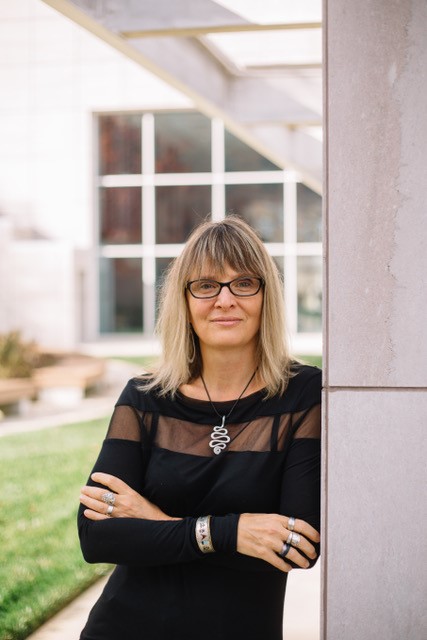Brown’s Study of Criminology Keeps Eye on Community, Popular Culture

Along with other UT faculty and students, she is conducting focus groups to learn what the community thinks about current policies and security measures, including police in schools, and what might be done to create more “supportive and well-resourced schools.” They are doing the work at the request of several community groups, including the Knoxville Chapter of the NAACP, Black Mama’s Bailout, and Community Defense of East Tennessee.
It is just one example of how Brown applies her expertise as a critical criminologist and visual scholar to study society change-agents and be one herself.
Brown received the College of Arts and Sciences 2020 Award for New Research, Scholarly and Creative Projects in the Arts and Humanities, which provided her with a cash award to fund scholarship or creative work that garners significant external professional recognition.
Brown has a bachelor’s degree in comparative literature and film studies, a master’s degree in criminal justice, and a doctorate in criminal justice and American Studies from Indiana University—an educational resume that explains her interdisciplinary approach to studying criminology.
With support from the National Endowment for the Humanities, Brown is curating a digital library of materials associated with modern abolition movements.
“Abolition Now: A Movement-Based Digital Space for Envisioning Freedom, Past and Present” looks at the way artists, activists, and others have portrayed social justice movements, like Black Lives Matter, and current events, like George Floyd’s death under the knee of a police officer.
“The pursuit of abolition, from slavery to prisons, has been an intensely visual effort, materializing now as increasingly mainstream demands to abolish police, prisons, rent, cash bail, and borders,” she said. The goal is to “provide a digital hub for understanding the artifacts, encounters, and interventions that make up emergent forms of justice around abolition.”
In a similar vein, Brown—who admits to being a true-crime aficionado—teaches a course called Visual Criminology. In it, students study how films, TV shows, podcasts, and other mediums portray crime, criminals, and the prison system.
She said she tells her students that her interest in criminology and social justice is personal.
A first-generation college student, Brown grew up in a lower-income family that encountered the harsher side of society. She has had family members who were addicted to drugs and served time in prison, but she has also had relatives work as police and correctional officers.
She tells her students that much of society is caught up in a similar social tug-of-war, with economic and emotional investment on both sides of the prison bars, all in need of transformation.
This summer, Brown will go to Scotland on a Visiting Fellowship at the Scottish Centre for Crime and Justice at the University of Glasgow. She hopes the trip paves the way for a future Fulbright Scholar Award.
–Story by Amy Blakely